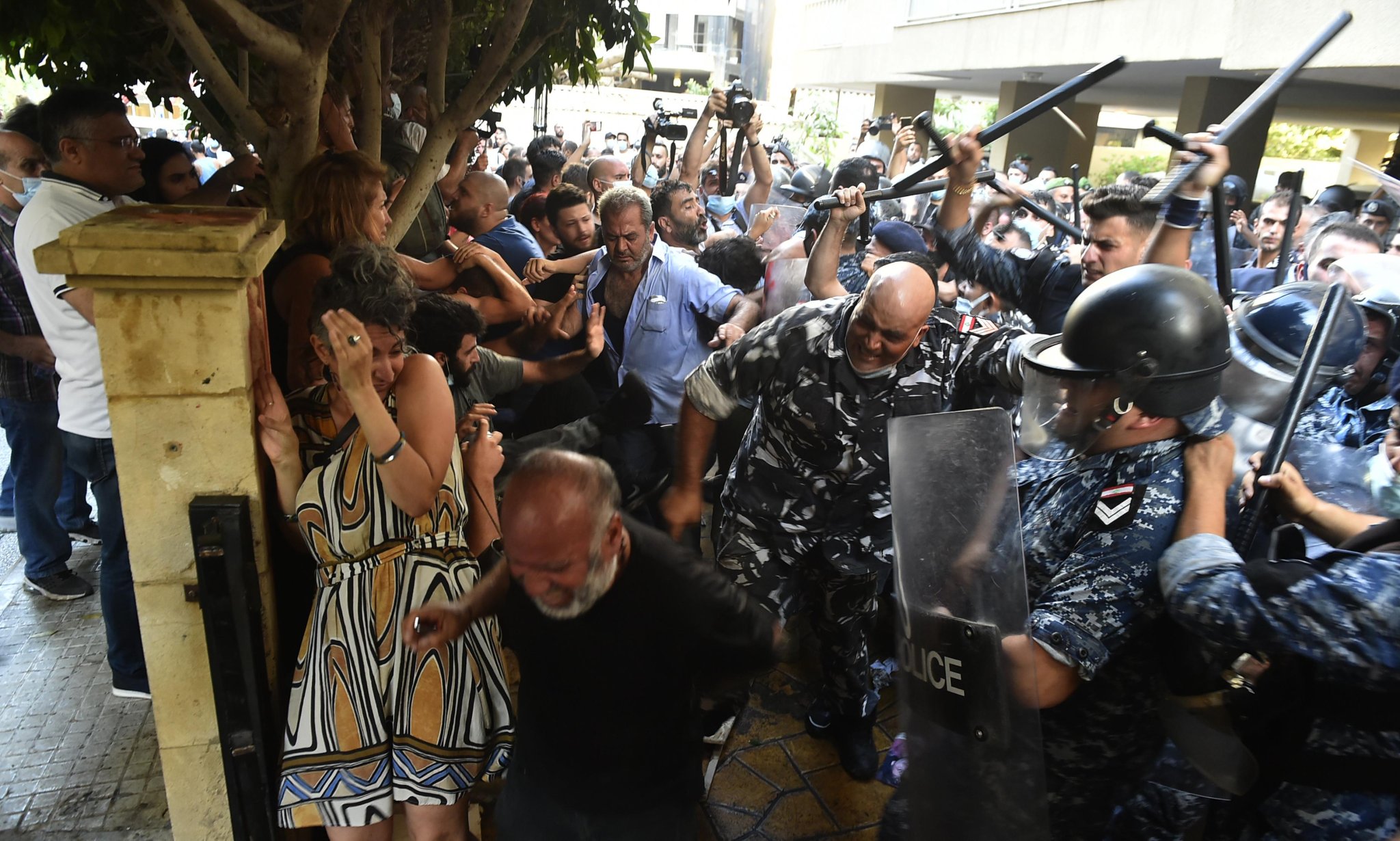Interior Minister Mohammed Fahmi said he will not lift the immunity of General Security Chief Major-General Abbas Ibrahim, despite heavy protests by the families of Beirut blast victims last night.
Fahmi told Asharq Al-Awsat that he is fully convinced with his decision, and that granting lead investigator Judge Tarek Bitar permission to prosecute Ibrahim for the Beirut blast would go against the law.
The Interior Minister also said he is confronting public anger “with the law.”
Last night, riot police violently beat and tear gassed the families of Beirut blast victims in a protest facing Fahmi’s Kraytem residence. More than 20 individuals were injured.
Demonstrators raised placards and photographs of their lost loved ones, demanding that Fahmi lift Ibrahim’s immunity after he rejected a legal request to interrogate him.
On July 2, lead investigator Judge Tarek Bitar announced legal procedures against a handful of high-ranking politicians and security officials, including Ibrahim. The major-general sent a memo in 2014 to other high-ranking officials regarding the dangers of the explosive material in the port, indicating his knowledge of its presence six years prior to the explosion.
“By refusing to lift Abbas Ibrahim’s legal immunity, the interior minister is standing between us, the relatives of blast victims, and justice,” Paul Najjar, who lost his three-year-old daughter in the blast, told journalists outside of Fahmi’s home. “[He is] killing us a second time.”
Bitar also requested parliament to waive the immunity of ex-finance minister Ali Hasan Khalil, ex-public works minister Ghazi Zaiter, and ex-interior minister Nohad Machnouk. The decision has yet to be approved by parliament, with MPs requesting more evidence prior to making a decision. Bitar rejected their request, a judicial source told AFP.
Protesters gathered around Fahmi’s residence, prompting riot police to surround the building as multiple protestors attempted to break in. Some succeeded in climbing over the exterior barriers, smashing the front entrance glass, spray painting words such as “criminal” on the walls and placing empty coffins and bloodstained portraits at the entrance to symbolize their loved ones.
Others spray-painted $50 on the shields held up by riot police, the value of their monthly salary because of the significant depreciation of the Lebanese lira.
Multiple people chanted for Fahmi to exit the building and face them, while others were raging and called upon the same fate that met their children to meet him. Many threw stones, tomatoes, water bottles and whatever they could find.
Soon, riot police attacked the protestors, pushing them back towards the outside of the building while viciously beating and tear gassing them. Many had to be treated by the Red Cross on site.
Demonstrators declared that they will resume their protests until Fahmi decides to lift Ibrahim’s immunity and allow the interrogation to proceed.


